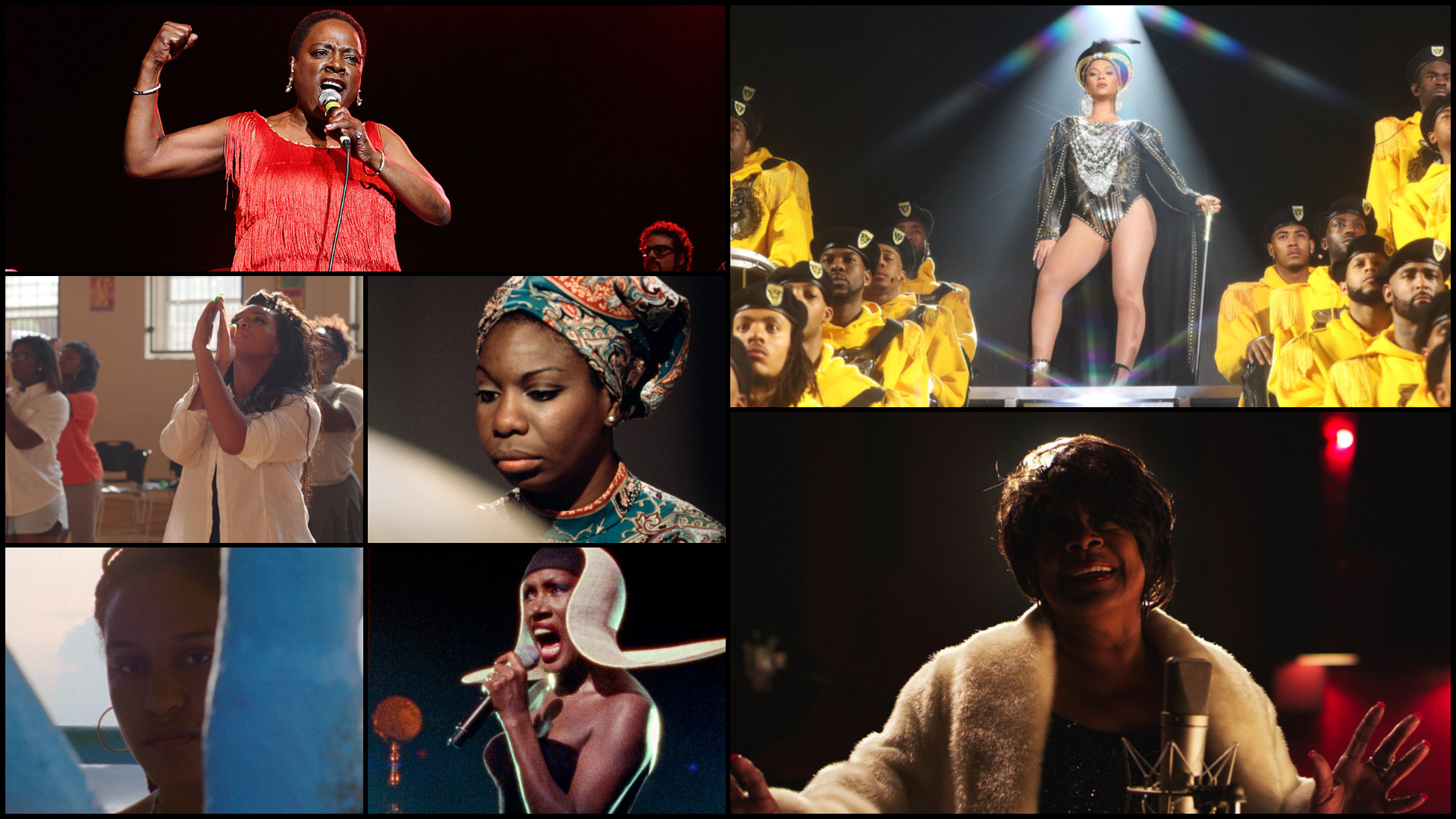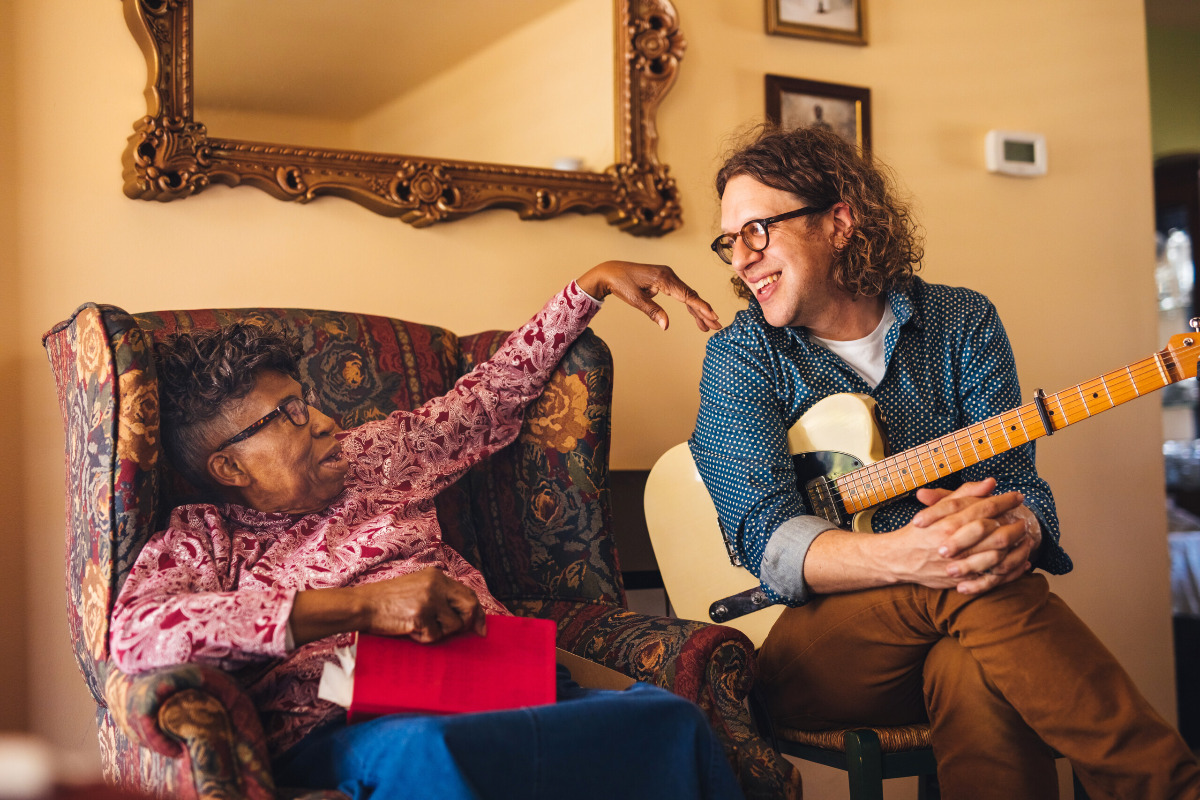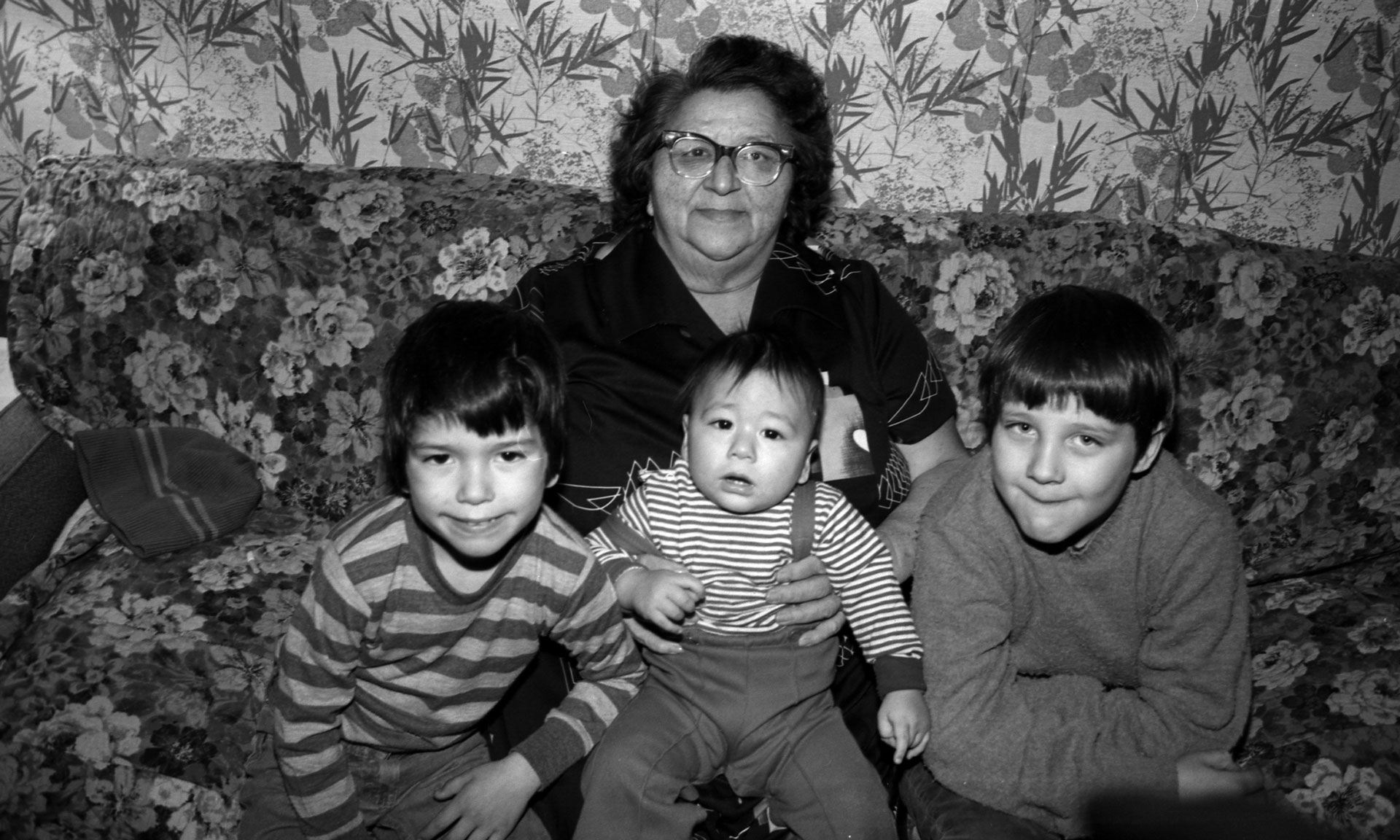When I was asked to compile a list of the finest documentaries on Black female artists, several overlapping films came up in personal recommendations, best-of lists, and general film archive searches. On one hand, this affirms that their brilliance can be widely appreciated, rising to the top. But on the other hand, it is also telling that the most relevant films about Black women artists over the past couple decades fit on a list of 10+ films.
Documentaries about Black women artists tend to focus on the musicians, actors, and writers we know the best. But some spotlight those whose influence is undeniable, but who were anonymous footnotes in history until uncovered on film. 20 Feet from Stardom (2013) and Betty: They Say I’m Different (2017) are two excellent docs that achieved exactly that.
Some films are made by the artists themselves in a deliberate attempt to take control of their legacy (see Beyoncé’s Life Is But a Dream, 2013 and Homecoming, 2019), or as a documentation of their current selves, bursting onto the scene while looking back at what propelled them there (see Rebeca Huntt’s Beba, 2021).
Others are labours of love by those closest to the artist (see Poly Styrene’s story directed by her daughter in Poly Styrene: I Am a Cliché, 2021) or sometimes feature voices and perspectives the artists may not have chosen to have a say in telling their story (the appearance of Nina Simone’s abusive ex-husband in What Happened, Miss Simone?, 2015). There is beauty in their existence, and the others on this list, but clearly, we still need more.
1. Beba (2021)
Dir. Rebeca Huntt
It’s not often that a debut doc makes a splash as much for its content as for the filmmaker’s style, but this raw, tender memoir and ode to creativity by Afro-Latina director Rebeca Huntt is no ordinary film. Featuring surrealist scenes inspired as much by avant-garde director Terence Nance as by Huntt’s dual upbringing in the mountains of Venezuela and the streets of New York, Beba is an incisive look at how trauma winds through a family—and all the ways it can be expressed and resolved through art.
2. Life Is But a Dream (2013) and Homecoming (2019)
Dir. Beyoncé, Ed Burke, Ilan Y. Benatar | Dir. Beyoncé, Ed Burke
Thanks to Netflix, which gave Beyoncé complete license to make her own film, Homecoming is HER definitive doc. But her 2013 documentary Life Is But a Dream, which similarly reveals layers of her private persona in the process of creating a stage show, is the first real glimpse of exactly how well Beyoncé, who famously fired her own dad as manager, controls her personal image and professional legacy. Homecoming was a visual feast, a feat of seamless editing and tight choreography combining two shows into one masterful production. Both films reveal a rare glimpse at the inner world of Beyoncé, but each is equally curated. Beyoncé may only let you see what she wants you to see, but it will always be glorious.
3. Grace Jones: Bloodlight and Bami (2017)
Dir. Sophie Fiennes
Grace Jones is an undisputed icon, with her influence spanning music, movies, and style. In this film, a family visit with her son to Jamaica provides the narrative core around which all other elements of her documented life are built. Concert footage featuring elaborate costuming plays against intimate family moments, recording sessions, and the mundane moments in between. But she, and this, are anything but mundane.
4. What Happened, Miss Simone? (2015)
Dir. Liz Garbus
Nina Simone needs no introduction, but this film still does a masterful job at presenting the “Feeling Good” singer and civil rights activist in the context of her life as a talented, dark-skinned woman in Jim Crow America. The film isn’t without flaws: It has been critiqued for the inclusion of her abusive ex-husband, akin to allowing Chris Brown a say in the narrative of Rihanna’s life. But it is nonetheless a powerful portrait of a true musical genius, whose creative output matched her life in both beauty and complexity.
5. Step (2017) and A Ballerina’s Tale (2015)
Dir. Amanda Lipitz | Dir. Nelson George
Black women in the dance world are still a remarked-upon rarity, and this pair of films show two distinct forms of dance: the explicitly African-American step dance, and the overtly European ballet. But the story of a Baltimore high-school girls’ step team fighting personal demons while trying to win a championship and get into college meshes incredibly well with the equally inspiring story of Misty Copeland, the first Black principal ballerina at the American Ballet Theatre. Copeland’s film covers her prodigious rise but also grapples with injury and the race and body-image issues plaguing the homogeneous world of professional ballet.
6. Maya Angelou: And Still I Rise (2016)
Dir. Rita Coburn, Bob Hercules
To be a celebrated Black artist is to be highly politicized, but Maya Angelou was one artist who never shied away from the influence she knew she had. This film is a thorough celebration of one of the most revered Black artists, male or female, of the 20th century, whose influences spanned acting, activism, singing, dancing—including early work in strip clubs of which she was never ashamed—and writing. Early in the film, Hillary Clinton, one of the many notables featured paying homage to her, says, “I would hate to see her just remembered for one thing.” This film remembers it all.
7. 20 Feet from Stardom (2013)
Dir. Morgan Neville
This film highlights the unknown voices behind some of the most iconic vocals in pop music in the 20th century—from the syrupy vocals of familiar ’50s pop songs to the raw soulfulness of the biggest songs in rock and roll. Darlene Love, the first Black female studio background singer, is a major focus, but the film locates and contextualizes a key handful of other, mostly Black, mostly female, background singers, chronicling their lives just shy of the spotlight and their individual triumphs in the decades since they first began.
8. Poly Styrene: I Am a Cliché (2021)
Dir. Celeste Bell, Paul Sng
This film is a labour of love by Celeste Bell, only daughter of Marion Elliot, aka British punk pioneer Poly Styrene of the band X-Ray Spex. An intimate, loving, archival deep-dive inspired by Poly Styrene’s death shortly after she and Celeste reconnected, the film details Elliot’s upbringing as a biracial child in a volatile environment, her true homemade punk aesthetic that connected with millions of fans, the lifelong mental illness that plagued her, and her journey in search of stability and healing that included a formative immersion into Hare Krishna. A gorgeous tribute and insightful film about the corrosive nature of fame.
9. Betty: They Say I’m Different (2017)
Dir. Philip Cox
Betty Davis epitomises influential Black woman artists who have never achieved the fame they deserve. An innovative film that blends animation and abstract imagery with traditional documentary techniques, it reveals her role in the centre of the ’70s funk scene as wife and collaborator to Miles Davis, friend to Jimi Hendrix, songwriter for the Commodores, but above all, pioneering musician both in the rawness of her funk music and her business acumen as the first Black, female, self-managed artist. As Miles Davis himself said, she was “Madonna before Madonna, Prince before Prince.”
10. Miss Sharon Jones! (2015)
Dir. Barbara Kopple
At its core, this film is a pure celebration of soul musicians despite the often-torturous road that it takes to make it as a performer. That’s particularly true if you’ve been considered “too short and too dark to be a music star,” as Sharon Jones was called before finding success. The film is also an intimate look at Jones’ battle with pancreatic cancer, right as her star finally started to rise after decades on the road, and the collective effort by her loved ones to take care of her and nurse her back to health. A celebration of hope, with incredible music to match.












